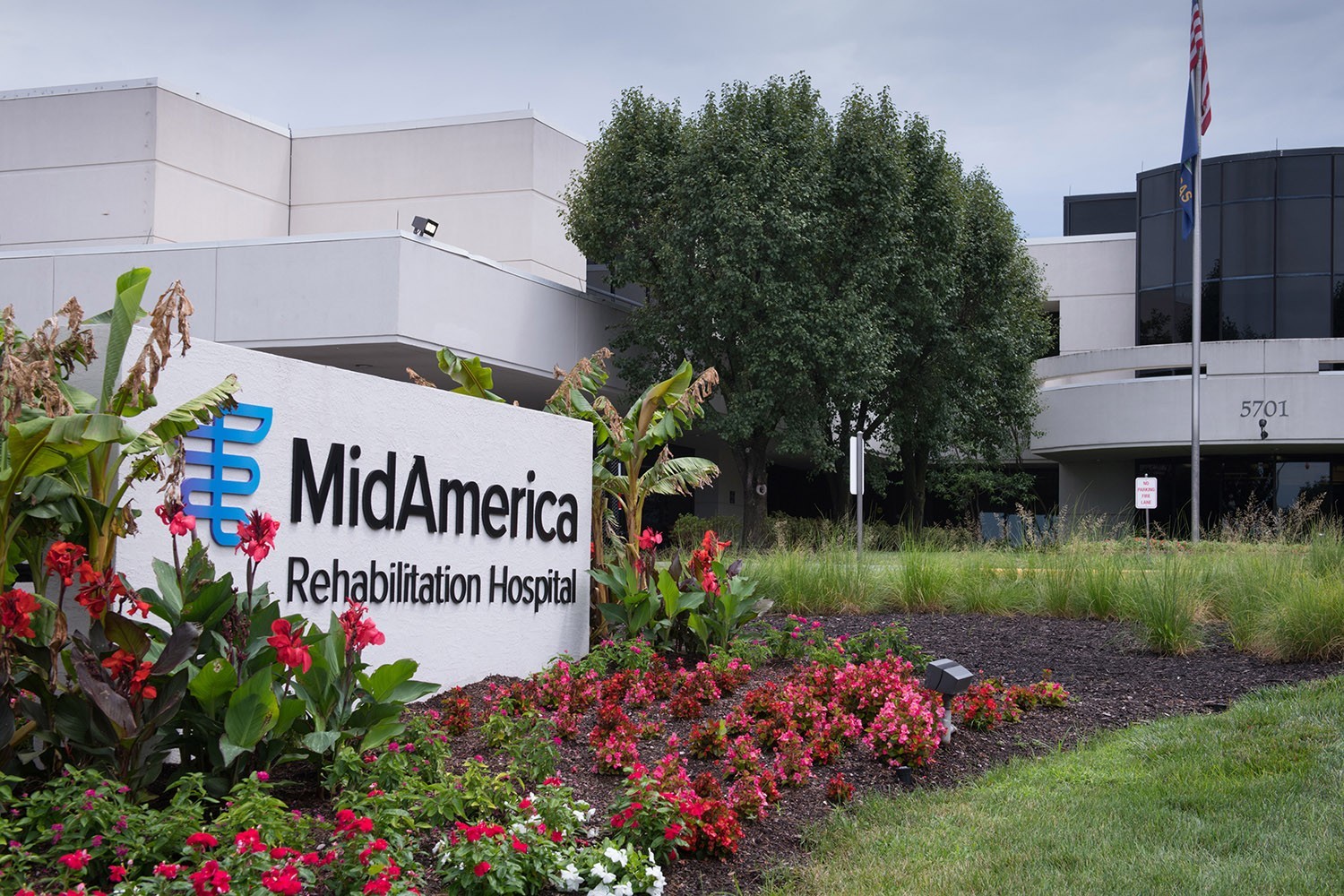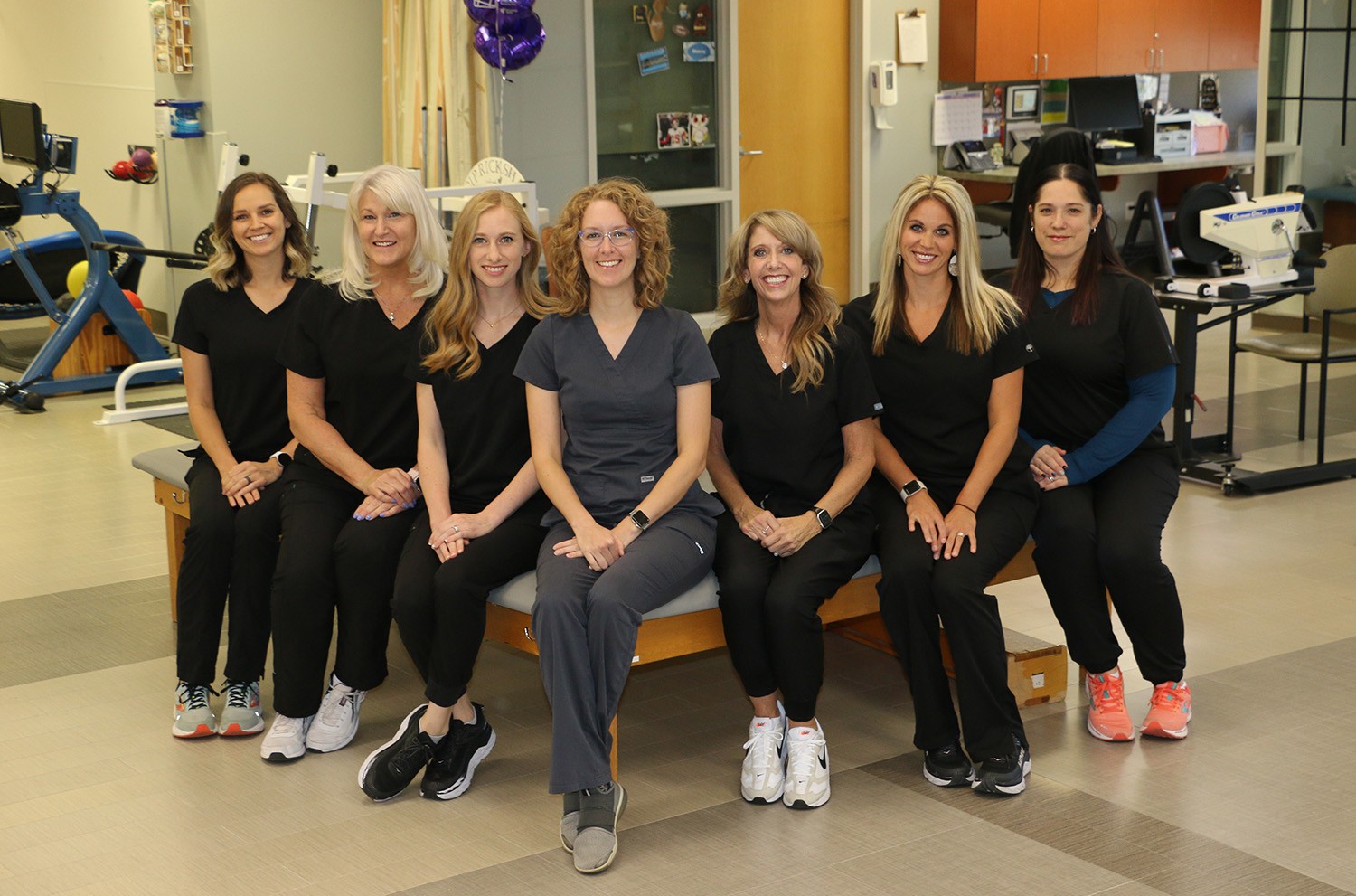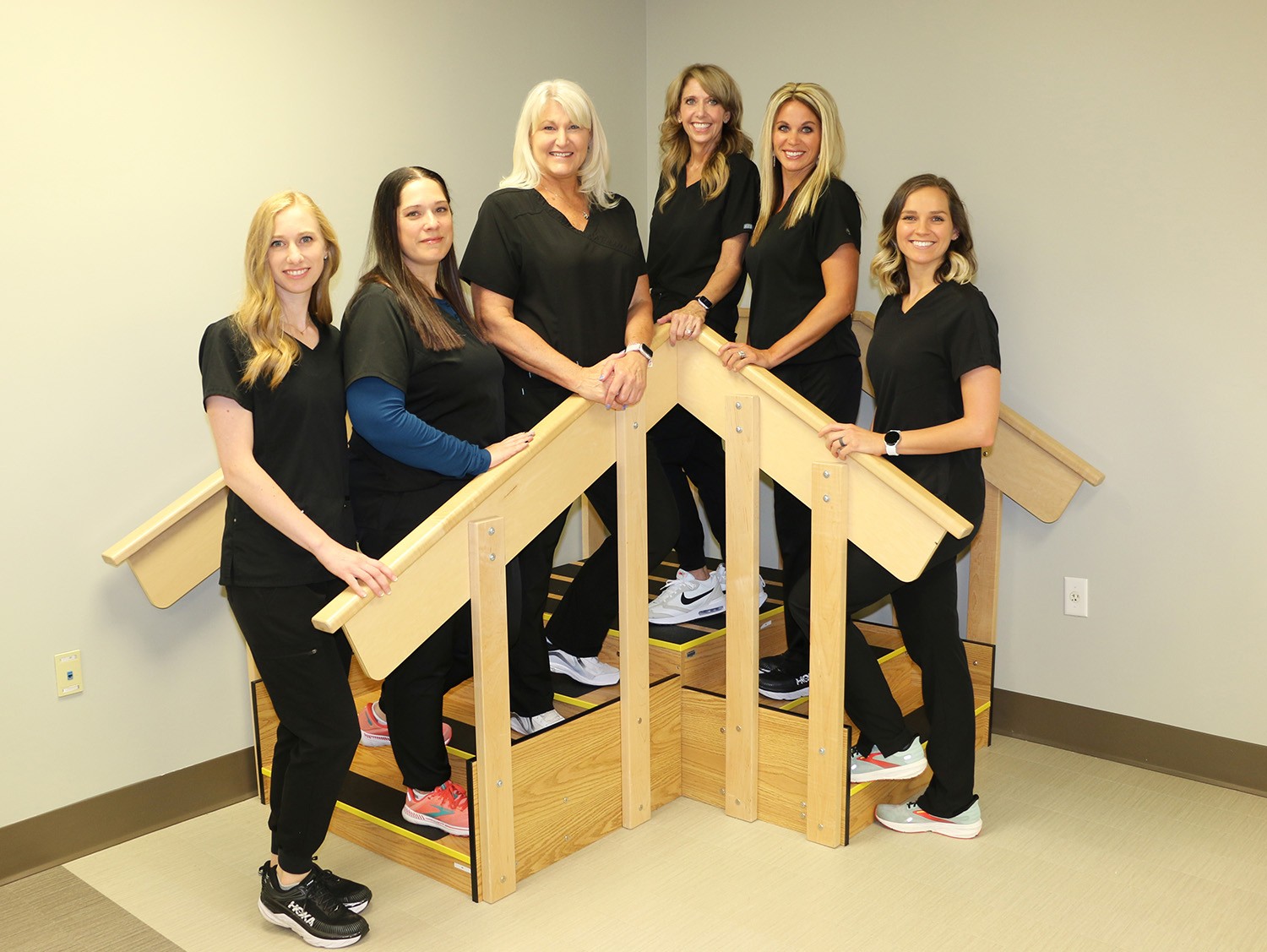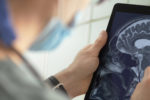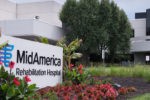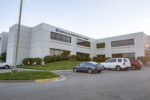The Trusted Choice
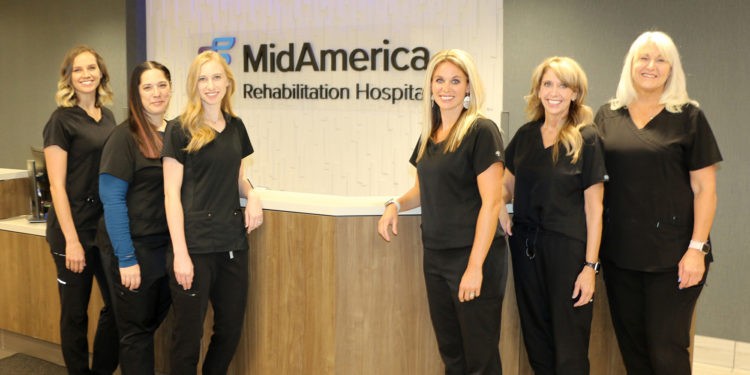
Passionate about patient care, MidAmerica Rehabilitation Hospital understands the power of trust when restoring the best quality of life possible to its patients.
Story by Ann Butenas
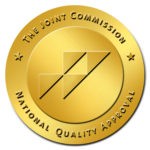 In order to regain independence after a life-changing illness or injury, it is important you have a team of specialists fully committed to your own unique journey of recovery. MidAmerica Rehabilitation Hospital (MARH), located in Overland Park, KS, and serving the entire metro area has earned the Gold Seal of Approval™. Each of its rehabilitation programs – Stroke, Brain Injury, Spinal Cord Injury, Amputee, and Parkinson’s Disease Rehabilitation has The Joint Commission Disease-Specific Care Certification.
In order to regain independence after a life-changing illness or injury, it is important you have a team of specialists fully committed to your own unique journey of recovery. MidAmerica Rehabilitation Hospital (MARH), located in Overland Park, KS, and serving the entire metro area has earned the Gold Seal of Approval™. Each of its rehabilitation programs – Stroke, Brain Injury, Spinal Cord Injury, Amputee, and Parkinson’s Disease Rehabilitation has The Joint Commission Disease-Specific Care Certification.
MARH operates through clinical collaboration and advanced technologies, creating individualized care plans designed to meet the needs of each patient while also helping them to achieve their specific goals.
Each of the five certified programs assists patients in reaching their fullest potential by maximizing their independence and helping them to achieve the best quality of life.
“We want to help our patients return to home and/or work, get back into the community, and spend time doing what they enjoy with the people they love,” expressed Laurin Willetts. “One thing that makes us unique is that patients can begin their rehab journey through inpatient where they stay overnight and receive daily rehabilitation, and then they can transition to our outpatient services where they come in for therapy a few times a week.”
Each certified program is comprised of a team of medical staff ranging from doctors, therapists, and nurses to hospital administrators, pharmacists, dieticians, and case managers.
Parkinson’s Program –with Laurin Willets, M.A. CCC-SLP, and Anna Cisper- PT, DPT, C/NDT, Parkinson’s Team Leaders
“Our Parkinson’s program is our newest certification, as we became certified in April of 2020,” indicated Willets. “Our therapists are trained in programs that are specifically designed for people with Parkinson’s, including SpeakOUT!, LSVT LOUD, LSVT BIG, PWR!. Our Parkinson’s team also has specialized training in the knowledge of Parkinson’s disease and how to build a comprehensive, interprofessional care team. This program focuses on assessing balance to identify fall risk and providing patient and family education. We also strive to administer time-sensitive Parkinson’s medications within a narrow window of time to avoid the temporary decline in function that occurs when dopamine levels drop if medications are given too early or late. We also have a Parkinson’s Community Resource Center within our facility that helps connect patients with local resources.”
MARH recently tended to a Parkinson’s patient, Bill, who initially completed the rehab program before transitioning to outpatient therapy. Upon being first admitted, this patient could not eat or drink by mouth and was receiving nutrition solely via a feeding tube. Throughout his two-week stay, he worked with a speech therapist and worked on swallowing exercises with the use of an electrical stimulation swallow therapy technology called Ampcare. After two weeks, a swallow test indicated he was able to eat regular food and drink regular liquids. However, he had to swallow multiple times in order to get the food and liquid down without entering his lungs.
After a few more months of outpatient therapy, his swallow returned to normal and was cleared to enjoy a candy bar and some ice cream. He is also back out on the golf course and working out five times a week.
“My stay at MARH was like being in a five-star hotel,” emphasized Bill, who had previously been elsewhere, but his family found MARH, and the experience was top-notch. “This is one nice and clean hospital where the food is good, and the people are great. It’s a fabulous place, and I would recommend them to anyone.”
Brain Injury Program –with Team Leader Lisa Fortner- BaSW, COTA/L, CBIS, CPIT, Brain Injury Team Leader
The brain injury rehabilitation program encourages maximum recovery following both traumatic and non-traumatic brain injury. The mission of this team is dedicated to providing outstanding rehabilitative services to maximize the quality of life and function for brain injury survivors and their families.
“Acquired brain injury is the term for both traumatic and non-traumatic brain injury,” explained Fortner. “Traumatic brain injury can be a result of vehicle accidents, gunshot wounds, assault, and falls, among other injuries. Non-traumatic brain injury or encephalopathy often occurs in critically ill patients including, but not limited to urinary tract infections, respiratory failure, viral infections such as COVID-19, meningitis, cardiac arrest, seizure, or stroke.”
Acquired Brain Injury can affect many aspects of a person’s ability to function. This can include cognitive decline, change in mood, vision changes, difficulties in problem-solving, slow mental processing, lack of behavioral control, and more.
In the Brain Injury Program, family training is a critical part of the process to ensure a successful discharge back into the community. In fact, family is invited to participate in therapy sessions, community reintegration, and goal setting.
“A large part of the individualized plan of care for patients with brain injury typically includes addressing neurobehavioral changes,” stated Fortner. “Our team has implemented some additional tools to assist the patient in getting the most benefit from the therapies provided.”
Such therapies include “Quiet Zone” postings to decrease stimulation for the patient between therapists and during the evening hours. Further, “Brain Injury Guidelines” are posted to give tips to family and friends when interacting with an injured brain patient, along with information regarding facility protocols for the best recovery for the patient.
“We can achieve this by allocating more private rooms, and then allowing for treatment in the patient’s room or in our Quiet Gym,” suggested Fortner. “We also utilize Up/Down schedules to aid in physical, mental, and psychological rest time between treatment sessions. We have safety devices available to help prevent falls and elopement including wander guards, bed, and chair alarms. Psychiatric, psychological, and neuropsychological services are available for patients and their family members.”
While focusing on patient and /or family education has always been a priority in this program, MARH also provides direct care staff members with opportunities for specific brain injury-related training. The members of the core team are Certified Brain Injury Specialists, which is an accreditation provided by the National Brain Injury Association. Plus, all brain injury team members and a majority of the direct care staff are certified in Nonviolent Crisis Prevention Intervention.
“Several of our therapists have achieved certification in the evidenced-based therapy techniques in neurology by obtaining NDT and Neuro IFRah, as well as Neurovision specialists,” said Fortner, who has worked in Occupational Therapy at MARH for 24 years and has led the Brain Injury Program for 17 of those years.
“Although we have been accredited by Joint Commission as a leader in brain injury rehabilitation, I believe one of our greatest accomplishments comes from having a former brain injury patient wanting to give back to our program,” Fortner smiled. “MidAmerica hosts a monthly community support group for persons with brain injury, led by this former patient. He has the fantastic ability to engage patients and families in group discussions and provide education on requested topics and resources. In a sense, the student has become the teacher.”
Spinal Cord Injury Program –with Betsy Wilson, PT, CWS, Wound Care Coordinator, and Spinal Cord Team Leader
“I feel our Spinal Cord Injury (SCI) program meets each patient where they are,” said Wilson. “Whether it is helping a patient with a new injury or someone who has been living with SCI for years, we focus on personal goals for each. Our program follows a patient through the continuum of SCI recovery from inpatient rehab to outpatient rehab.”
Additionally, MARH’s medical director follows SCI patients in the onsite clinic to adapt their program to their changing needs and goals. This team incorporates technology to enhance care, from gait robotics to FES cycle (electrical stimulation assisted cycling for arms or legs) but the greatest treatment modality they have available is their therapists and nurses who work as a team to meet patient needs.
Amputee Program –with Debbi Wedel, PT, Outpatient Therapy Manager, and Brandy Johnson, PT, Team Leaders
The amputee rehabilitation team at MARH has worked diligently over the past eight years to empower people living with amputation to live their best life.
“Our occupational and physical therapists utilize gym equipment as well as technology, along with the patient’s-built environment, to prepare them to complete self-care routines, engage with the community, and return to work and home life,” expressed Wedel. “Our Realistic Environment Applied Learning (REAL) gym offers a car, grocery store, cafe, and seating areas where patients practice community mobility and learn how to navigate challenges after limb loss.”
Patients walk in parallel bars and utilize the FreeStep to practice using stairs, walkers, carpet, or anything else they need to use within a safe and supported environment.
“Many of our patients transition to our outpatient department to further progress skills with their prosthesis with emphasis to incorporate community and work environments for a higher-level return to independent activities,” stated Johnson, who also explained that gait mechanics are reinforced to maximize the function of components on a prosthesis for more efficient gait pattern with a large part of this experience in educating each patient on long term aspect of new life as an amputee.
“We help prepare them for return to their prior lifestyle as much as possible,” she said.
MARH conducts monthly support groups for amputees across the community so they can share stories and experiences, frequently going on outings to engage in real-world experiences together. The team leaders maintain a keen focus on finding ways to continually improve its program to meet the needs of its patients. They also work in collaborative relationships with prosthetists in the area so they can offer holistic treatments for all patients.
The Stroke Care Program –with Joni Cook, PT, DPT, CSRS, Team Leader
When you are driven by empathy, delivering an improved quality of life for stroke patients, whether in the home or in the community, simply comes naturally to you.
“We realize the complexities on the physical, cognitive, and psychological levels during this time of ‘unknowns,’ and we want to share our resources and knowledge for the best possible outcomes,” expressed Cook.
As soon as a patient is admitted, this team operates on full throttle. Their focus is on discovering the individual needs and goals of each patient and their family members. This allows them to effectively incorporate strategies into MARH’s multi-disciplinary approach to recovery.
“We are able to achieve our goals in our intensive and comprehensive rehabilitation program using innovative technology during therapy sessions, including Bioness, in-house swallowing tests, spasticity management, robotic walking devices, such as Ekso NR and our Auto-Ambulator,” noted Cook, who also indicated education on focused needs regarding prevention, recovery, and a team approach for a safe discharge are also paramount for success. After discharge, patients are encouraged to attend MARH’s monthly stroke support group.
For more information on MARH and all of its exceptional teams, visit them online at encompasshealth.com or call 913.491.2400.
